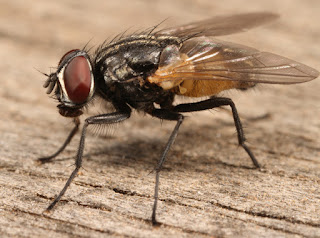Should I throw away food once a fly has landed on it?
Should I throw away food once a fly has landed on it?
It only takes a single fly to alight on your picnic lunch to make you uneasy about what germs may have landed with it. But what harm can come from a fly landing on your food? Should you throw it away?
It only takes a single fly to alight on your picnic lunch to make you uneasy about what germs may have landed with it. But what harm can come from a fly landing on your food? Should you throw it away?
There are hundreds of differentfly species in Australia. This diverse group of insects ranges from mosquitoes and biting midges to bush flies and blowflies. They play an important role in the environment by assisting decomposition, pollinating plants, and providing food for insectivorous predators. They can help solve crimes and treat infected wounds.
Many of these flies pose a health risk but none hang about our homes more than the house fly. It’s a ubiquitous presence during the warmer months, can be a substantial annoyance and may also be a potential health risk.
Musca domestica, commonly known as the house fly, is one of the most widespread nuisance insects in the world. It has found a place in and around our homes. It is closely associated with rotting organic waste, including dead animals and faeces. It’s no surprise they’re commonly known as 'filth flies'.



Comments
Post a Comment